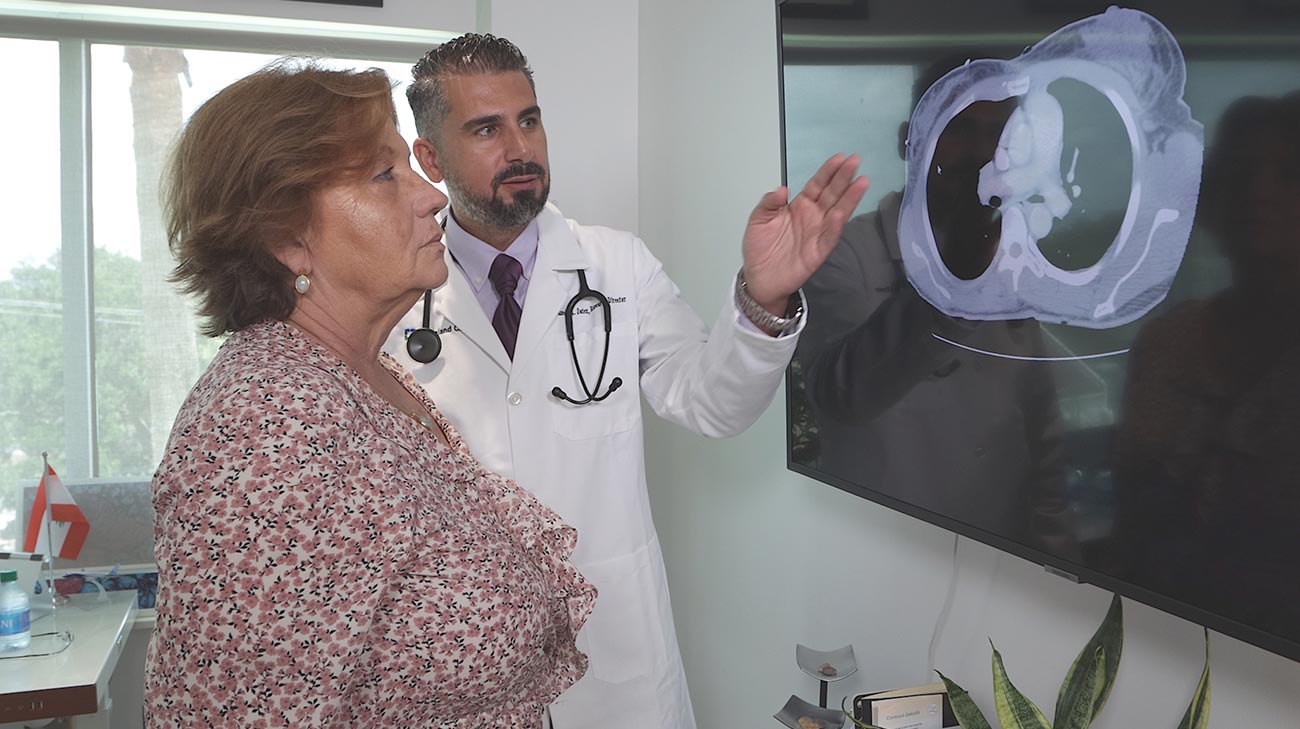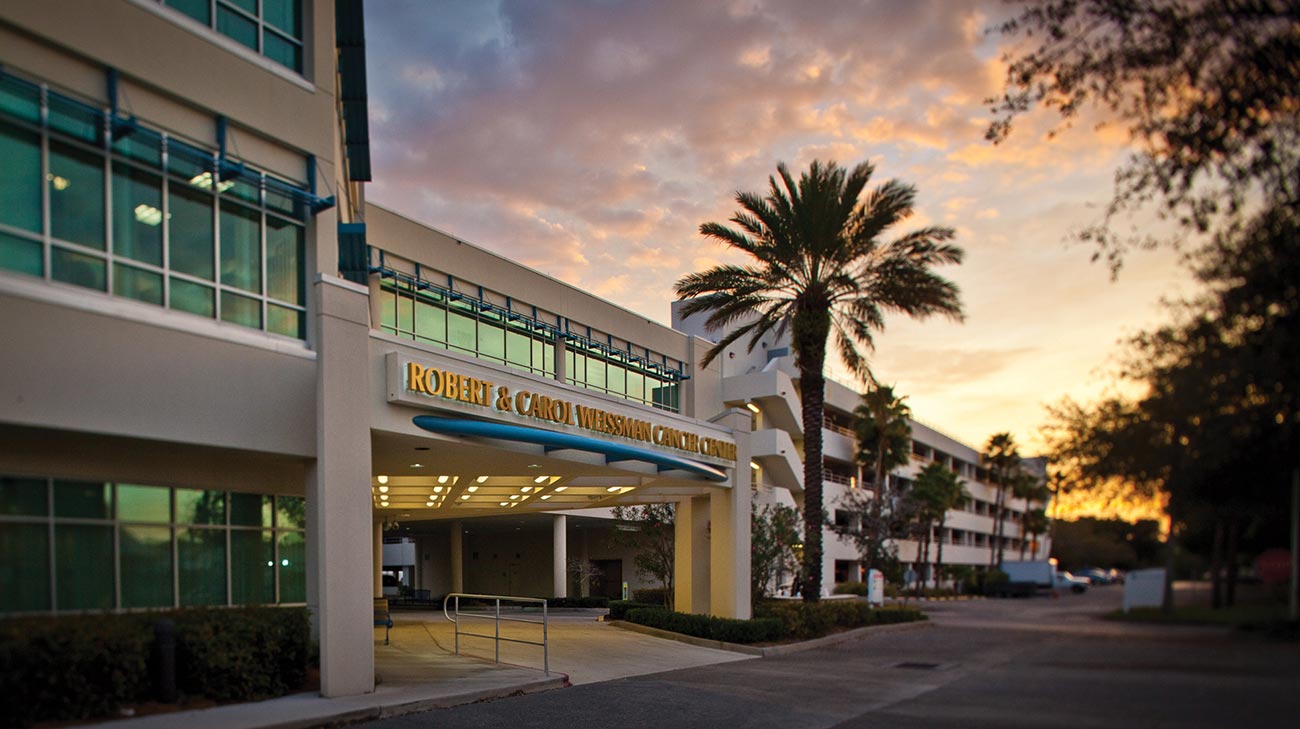About six years ago Carrie Rodriguez was told she only had about three months left to live. She had been diagnosed with anal cancer and, even after undergoing surgery and treatment, a scan showed the cancer had spread to her lungs. Doctors told her there was nothing more they could do and sent her home with hospice care.
Refusing to believe she would soon lose her life and thinking primarily of her son, who was in high school at the time, Carrie was not willing to give up.
“I wanted to find a treatment,” Carrie says. “I knew there had to be something somewhere. I believed I could live longer.”
On the advice of her sister and some friends, Carrie contacted the National Institutes of Health (NIH) in Bethesda, Md., and forwarded to them her medical records and details about her condition.
Two days later, she received a call from Houssein Abdul Sater, MD, who at that time was working as a physician-scientist for the National Cancer Institute, which is part of the NIH. Dr. Sater was studying immunotherapy for cancer treatment, and he offered Carrie the opportunity to participate in a clinical trial.

Dr. Houssein Abdul Sater asked Carrie to participate in his clinical trial. (Courtesy: Cleveland Clinic)
“I was ready to try anything,” Carrie says. She flew to Maryland and started treatment as part of the clinical trial right away. Though she says the actual treatment was “very easy,” Carrie says she ran into some obstacles along the way, including having to have surgery on each of her lungs a year apart.
“We kept fighting along with her,” Dr. Sater says. “We thought outside the box when we treated her.”
Despite having had stage 4 cancer, Carrie currently “has no evidence of disease,” Dr. Sater says.
Carrie says Dr. Sater and his team gave her the hope and encouragement she needed. Dr. Sater would check on her every day, even on his days off, she says.
Naturally, she says she was “blown away” when she found out Dr. Sater was moving his practice to Florida. He is currently the Director of Research for Cleveland Clinic Martin Health, the Regional Director of the Cleveland Clinic Florida Research and Innovation Center, and a practicing hematologist and medical oncologist.
“I was very happy. I even relocated to be closer and under the care of Dr. Sater and his team,” Carrie says. Now living near West Palm Beach, Carrie receives her follow-up care at Martin Health.

Carrie's care was moved to Martin North Robert and Carol Weissman Cancer Center. (Courtesy: Cleveland Clinic)
Dr. Sater says he made the move to Cleveland Clinic Florida to be back in the community hospital setting where he felt his expertise could really make a difference in the lives of patients.
“It fills my heart with joy when I see that I made a difference for somebody,” Dr. Sater says. “And for Carrie, it is seeing her enjoy her life and enjoy her son.”
Though it was a long and tough road, Carrie is grateful for all of the people who helped her and for her continued care with her “incredible team” at Cleveland Clinic.
“It was worth every moment of it to know I was going to be there to see my son grow up,” Carrie says.
Related Institutes: Cleveland Clinic Cancer Center, Digestive Disease & Surgery Institute

